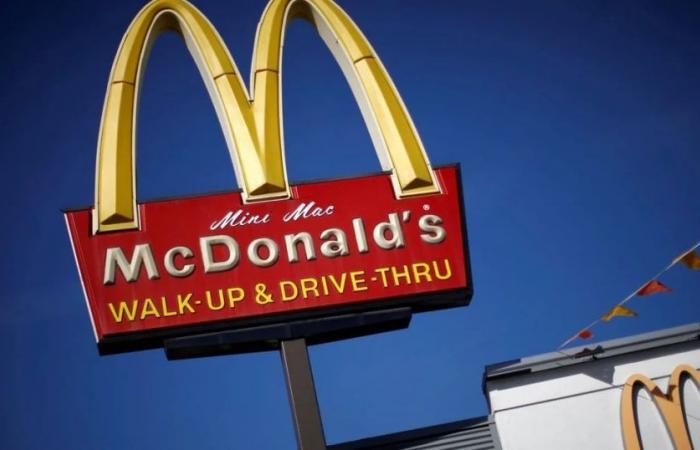
A senior executive of McDonald’s reiterated that the company’s plant-based meat test in the United States did not work, adding that the burger chain’s customers They don’t go to their restaurants to eat salads.
A test of its McPlant burger in San Francisco and Dallas “was not successful in either market,” he said. Joe Erlingerdirector of the chain in the US, at the Global Food Forum of Wall Street Journal In Chicago. The test ended in 2022, the company noted after the comments.
American consumers are not looking for “McPlant or other plant-based proteins from McDonald’s,” the executive added. The company has said that Plant-based foods have had a better reception in European markets.
Erlinger said, “If people really want McDonald’s salads, we’ll gladly re-release salads. But what our experience has shown is that It is not what the consumer is looking for.”
Shares of Beyond Meat Inc., which partnered with McDonald’s to produce the McPlant burger, erased an earlier decline as of 1:38 p.m. in trading Wednesday in New York to trade little changed. McDonald’s shares were little changed.
Instead of plant-based options, McDonald’s is investing in your chicken products since consumers lean toward that protein. The company sells more chicken than beef these days, he added.
“Part of this is due to affordability,” he explained. “Chicken is less expensive to produce and therefore, for a consumer looking for more affordable foods, Chicken is a great option right now”.
The McPlant had been launched in 2020 to serve the growing number of people who do not eat meat.
The group had already tested a plant-based burger in cooperation with Beyond Meat, a company that specializes in vegan meat substitutes.
The brand had been left behind in this market niche in which Burger King had already launched a vegetarian version of its iconic “Whopper” burger in April 2019 in the United States.
Once seen as the answer to human health and climate change, alternative meat startups have raised nearly $15 billion in venture capital funding over the past twelve years.
But now they have failed, and funding for startups food technology has fallen to the lowest level in almost a decade. The venture capital bible pitchbookwho has been following the Butcher shoprecently asked: “Have we reached peak plant-based meat?”
And yet, the reasons to eat primarily plants are now more plentiful than ever. The climate of the Land just passed a key turning point, with global temperatures over the past year 1.5 degrees Celsius above pre-industrial levels.
The animal agriculture It is the largest industrial source of water pollution and occupies three-quarters of the world’s agricultural land. Americans of means are intensely interested in eating healthier and are very aware of plant-based foods.
“Of all the foods we eat, the meat and the dairy They have the greatest impact. Globally, it accounts for around 11% of all carbon emissions. greenhouse gases“, said Paul Westsenior ecosystem and agriculture scientist at Project Drawdown, an organization focused on climate solutions. “Changing what we eat and what we waste is essential to reducing emissions,” she added.
So what went wrong with the promises of the plant based meat? It comes down to price, flavor and the health factor, according to industry analysts and former workers.
Price is an important factor. It’s much cheaper to make a pot of rice and beans than it is to make a steak. But on supermarket shelves, Beyond, Impossible and other plant-based burgers are consistently masks than their animal counterparts, approximately 30% more, when compared to hamburgers.
“Plant-based proteins [están] “Typically listed at a premium price, and typically when you’re talking about traditional meat, a 30% to 40% price premium, so I think that’s a very challenging sell in this inflationary environment,” Alex Frederick, senior technology analyst emerging on Pitchbook, he told Fortune. “Furthermore, in an inflationary environment, it is challenging to get consumers to try new or more premium products.”
According to the nonprofit institute Good Food Institute (GFI)which promotes alternatives to meat, price is a barrier for one in five people who don’t eat plant-based meatsand for one in four who eat them infrequently. GFI suggested that consumers would be willing to pay only 5% to 10% more for alternative meat than animal meat.
(With information from Bloomberg, AFP)

